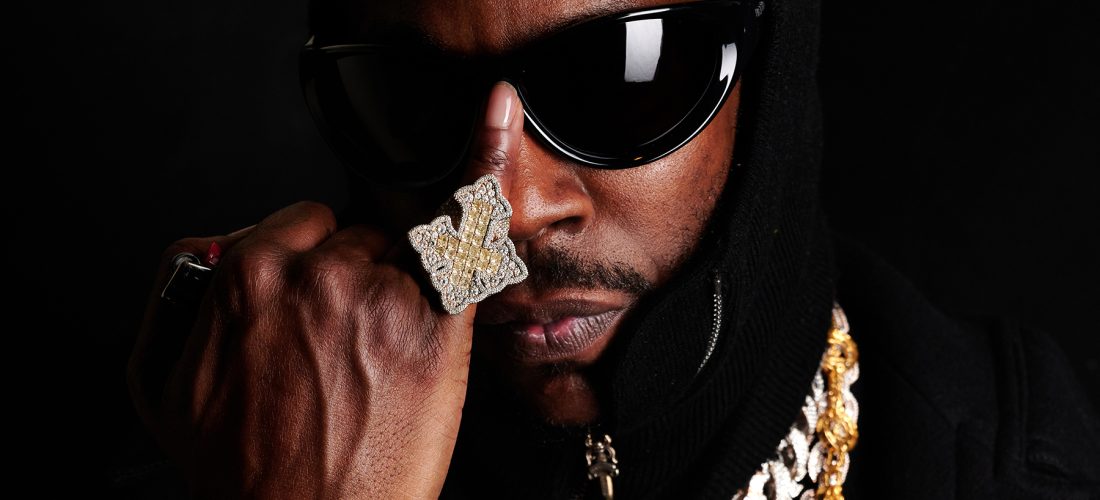The Trap Becomes a Retirement Home for 2 Chainz on ‘Dope Don’t Sell Itself’
Ten years ago, Atlanta rapper 2 Chainz made it big with mainstream trap production, luxurious rhymes about champagne on airplanes, and non-sequitur punchlines. Chainz was a rapper who could out-rap legends, but his music wasn’t necessarily expansive: There wasn’t the flurry of topics, motifs, sequences, or tics you’d get from someone like Lil Wayne or Kendrick Lamar. But Chainz was good at combining humor with grandiose confidence, delivering his lines in a pinched yet expressive voice that made his music a source of constant jubilation.
Dope Don’t Sell Itself is being marketed as Chainz’s last trap album (in July, he took to Twitter to say that it was), but it’s actually an attempt at a return to form. Rap or Go to the League, his 2018 album executive-produced by LeBron James, presaged this semi-retirement ploy by imagining Chainz as a socially aware former trapper. The album riffed on the idea that they are only two paths to upward mobility as a Black American — a concept that it often discussed to a point of fatigue. Despite having some undeniably great moments, Chainz’s take on the sports-rap bifurcation didn’t hold up in the weight of its ambition and was missing the controlled chaos that made Chainz such a force in the early 2010s.
Dope returns to more comfortable footing right from the start with “Bet It Back,” on which he raps, “My favorite plastic bag got some drugs in it.” Chainz won’t be talking about the social conditions of the Black experience here; he’ll be talking about how his pockets are lined from the rap that made him who he is. “Kingpen Ghostwriter” pits him against Lil Baby with Chainz upping the tempo in a way that recalls the Mike Will Made It or Lex Luger tracks that made him a force. Chainz is at his best when he is rapping downhill, with amusing lyrics like “Didn’t have no AC on/All we had was OnlyFans.” The upstart Baby is game here, rapping a capella at one point with the Auto-Tune-laden voice that has made him a superstar. The production functions as nostalgia for the trap era and late ’90s Southern rap.
Sometimes the beats pale compared to peak Chainz. Post Malone producer FKi 1st produces, “Neighbors Know My Name,” and doesn’t do a bad job, but it sounds a little like someone reaching for DJ Mustard and landing on a TikTok beat. Detroit rapper 42 Dugg shows up on “Million Dollar Worth a Game,” behind a beat that replicates the whistle that has become Dugg’s calling card. Dugg bests Chainz here. A decade ago, Chainz would not have been out-rapped like this, but here the student has become the mentor. Dugg’s sex raps are biting and humorous at the same time, exactly what Chainz was like years ago. The best song on this record is the Mannie Fresh-produced “Free BG,” named for the Hot Boyz rapper. It’s the quintessential Atlanta track: meant for the VIP section at a club with the cigar smoke in front of your eyes blocking everything but the dancers shaking to this beat. Lil Durk shows up on “Lost Kings,” a song where Chainz painfully recounts a friend dying from a domestic incident during which he was trying to help his sister. The message is simple: All this flossing is possible because he pushed through the tribulations that were put in his way.
This record isn’t the return to form that it aims to be, but Chainz is back in his element here. A rap veteran that has been everywhere from beloved Playaz Circle songs like “Duffle Bag Boy” to mainstream hits like Kanye West’s “Mercy,” Chainz has had a career that will be fondly remembered. But the fact is, right now, he is running out of steam. The lyrics aren’t razor-sharp in their imaginativeness. Despite Hail Mary completions like “The 44 bulldog a Georgetown Hoya fan/The draco sign a nigga like an autograph,” Chainz is the veteran that the youngsters like Stove God Cooks (the Syracuse rapper who has a feature here) now go to for their “Mercy” like verses. Chainz will be admired in history, but this album doesn’t quite put a bow on an otherwise rich musical career.
